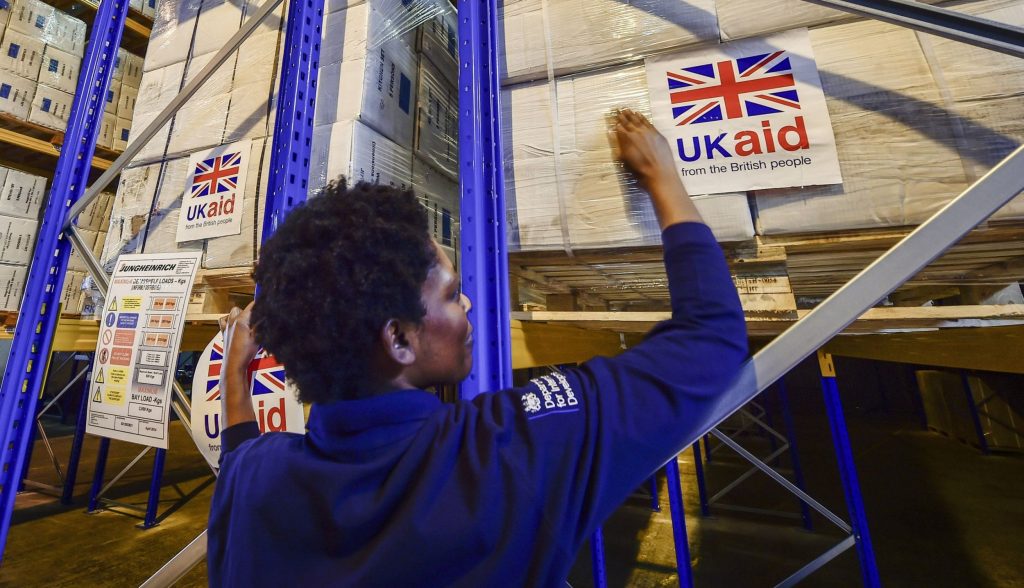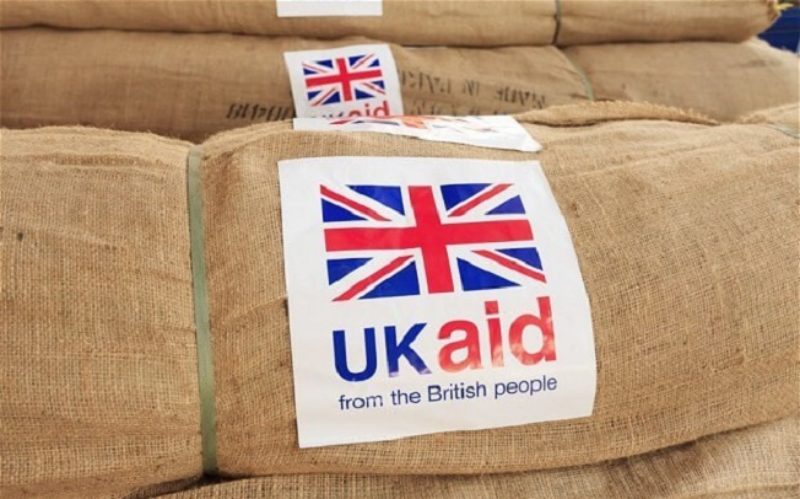Author: Julia Sun
On May 16, the UK announced its new international development strategy, setting out the UK’s future focus and priorities in the field of international development as well as new implementation methods.
On May 16, the UK announced its new international development strategy, outlining the UK’s future focus and priority areas for international development. This is the first time the British government has released an international development strategy since 2015. In 2020, after the British Department for International Development (DFID) and the Foreign and Commonwealth Office (FCO) merged to form the new Foreign, Commonwealth and Development Office (FCDO), high-level government adjustments and significant budget cuts led to several delays in the release of the new strategy .
On July 7, British Prime Minister Boris Johnson announced his resignation as leader of the Conservative Party and prime minister. This move casts new uncertainty on the just-released international development strategy.
What is the core of the new strategy?
The new development cooperation strategy emphasizes supporting the economic development of partner countries through investment and trade partnerships, with particular emphasis on supporting sustainable infrastructure. The new strategy reflects the increasing alignment of UK development policy with its foreign, trade and defense objectives.
What changes will the new strategy bring?
Official development assistance pays more attention to bilateral channels.By 2025, around three-quarters of UK official development assistance will be directed towards UK priorities through national and bilateral programmes. In the past three years, the proportion of bilateral aid in the UK's official development assistance has increased year by year, from 61.6% in 2019 to 68.6% in 2021. Through this move, the UK hopes to build closer bilateral partnerships to support countries to succeed as open, free nations.
Funding for multilateral institutions has been significantly reduced.By 2025, the UK's official development assistance to multilateral institutions will be reduced to 25% of total aid, a decrease of 13% from 38% in 2021. Given the UK’s long-standing strong support for multilateralism and its heavy funding of multilateral institutions, the sharp decline in multilateral aid is one of the most important shifts in the new strategy.
The Indo-Pacific becomes a regional focus.The new strategy shows the UK's shift in focus to the Indo-Pacific region, while noting that the UK will continue to provide support to the African continent. About one-third of the world's poorest people live in the Indo-Pacific region. The UK has historic ties with Commonwealth countries in the region, and the development of the Indo-Pacific region is also vital to the UK's economy and security.
What priorities does the new strategy identify?
Support sustainable economic growth.The "UK Investment Partnership" proposed in the new strategy is the top priority of the UK's new development cooperation strategy and aims to provide reliable investment to partner countries. The new strategy promises: By 2025, the UK will mobilize £8 billion (approximately $10.2 billion) per year from the private sector and beyond to support sustainable infrastructure and mobilize trade in low-income countries. The UK Investment Partnership will establish new knowledge hubs and leverage UK expertise to support partner governments in delivering sustainable economic growth in high-potential sectors such as manufacturing, agriculture and technology.
Gender equality is promoted as a core priority.The new development cooperation strategy reaffirms support for gender equality and focuses on three key areas: education, empowerment and ending violence, including working to address sexual and reproductive health issues and supporting women’s economic empowerment. The strategy reaffirms the Foreign Secretary's commitment to restoring funding for gender equality and says the UK will publish a new Strategy for Women and Girls in 2022.
Provide leadership in humanitarian assistance.The new strategy commits the UK to provide £3 billion (approximately US$4 billion) of humanitarian aid over the next three years and uses the UK’s diplomatic strengths to continue to push the international community to take action before and better manage conflicts, climate shocks and food crises. and anticipating humanitarian emergencies; investing with the private sector in science and technology solutions such as satellite imagery and digital cash transfers, and leveraging development expertise to strengthen the resilience of countries and communities.
Pay attention to climate change and global health.The new strategy reiterates that from 2021 to 2026, the UK’s contribution commitment to international climate finance (ICF) will be doubled to at least 11.6 billion pounds (approximately 15.6 billion US dollars), and funds will be balanced between mitigation and adaptation to climate change. By 2023, all new bilateral official development assistance will be consistent with the requirements of the Paris Agreement. In global health, the new strategy focuses on supporting the response to COVID-19 and preparing for future pandemics, strengthening health systems, integrating a One Health approach, ending preventable maternal, infant and child deaths, investing in research and innovation, and continuing to drive Breakthrough technologies in health systems and health security to address evolving health and security challenges. The strategy identifies the Vaccine Alliance (Gavi) and the Global Fund to Fight AIDS, Tuberculosis and Malaria (the Global Fund) as important partners for the future.
When will aid spending resume at 0.7%?
The new strategy reiterates that once fiscal conditions permit, the UK will resume spending 0.7% of its gross national income on official development assistance. The Government will continue to monitor and review the fiscal position to assess when to return to this target. It is expected that from 2024 to 2025, the proportion of UK official development assistance in gross national income will return to 0.7%.
What adjustments will be made to aid implementation?
Take a more patient approach: The new strategy emphasizes that development assistance should address the root causes of challenges faced by development partners, build a strong economic and social foundation, support long-term development, recognize that solving fundamental problems will take longer, and carry out development assistance practices more patiently.
Emphasis on harnessing UK expertise: The new strategy aims to leverage UK expertise across government, the private sector and civil society to support partner countries to achieve sustainable economic growth, and establish new knowledge hubs to increase the use of UK expertise.
Reduce bureaucracy: The new strategy will speed up the delivery time of overseas development cooperation projects by giving UK ambassadors and high commissioners more decision-making powers to reduce bureaucracy and increase efficiency.

What is the response to the new strategy in the UK?
Some experts believe that the new development cooperation strategy shows a shift in British aid to focus on supporting the government's geopolitical objectives. The Overseas Development Institute (ODI) believes that this strategy puts British national interests at the center of development cooperation policies, but it does not pay enough attention to current development needs.
Mark Miller, Director of Development and Public Finance at ODI, believes that the new strategy proposes to reduce multilateral funding and increase bilateral funding, but major global challenges such as the debt crisis pose serious challenges to global development, and all countries, including the United Kingdom, cannot Solve these global problems alone. Some experts also believe that cutting important multilateral official development assistance is a major setback for UK development cooperation.
The promotion of gender equality as a core priority has been recognized by all walks of life. NGOs hope this year’s upcoming Strategy for Women and Girls will add more substance to the UK’s wider push for gender equality to address structural barriers to gender equality. Additionally, the strategy's renewed focus on climate change, humanitarian aid and global health was also viewed positively.
British civil society, while welcoming the release of the new development cooperation strategy, criticized the UK government for using its development aid to build profitable trade relationships with key partner countries. Critics point out that “support for the world’s poorest people should not be conditional on reaching trade deals or agreeing to investment partnerships”.
Many development experts remain skeptical that the UK's future development cooperation spending can return to the target of 0.7%. In an interview with the Financial Times, Preet Gil, the shadow international development minister of the opposition Labor Party, called for the immediate restoration of the 0.7% aid spending target.
All rights reserved, please indicate the source when citing.
references:
https://www.devex.com/news/devex-newswire-unveiling-the-uk-s-new-development-strategy-103247
Past review
- UK's 30% Reduction in Foreign Aid Budget Raises Concerns
- Constricted Aid Budgets and Dwindling Support: UK NGOs' Struggle to Forge Ahead
- Preliminary Statistics of 2021 Official Development Assistance: What is Behind the Numbers?
- What are the five major impacts of the Russia-Ukraine conflict on international development?
- New Trends of Global Donor Countries in 2021: Development Cooperation in the Era of Pandemic (Europe)
- Recapping International Development in 2021
- Seven Principles Likely to Influence Germany's Post-Election Development Cooperation Policies

